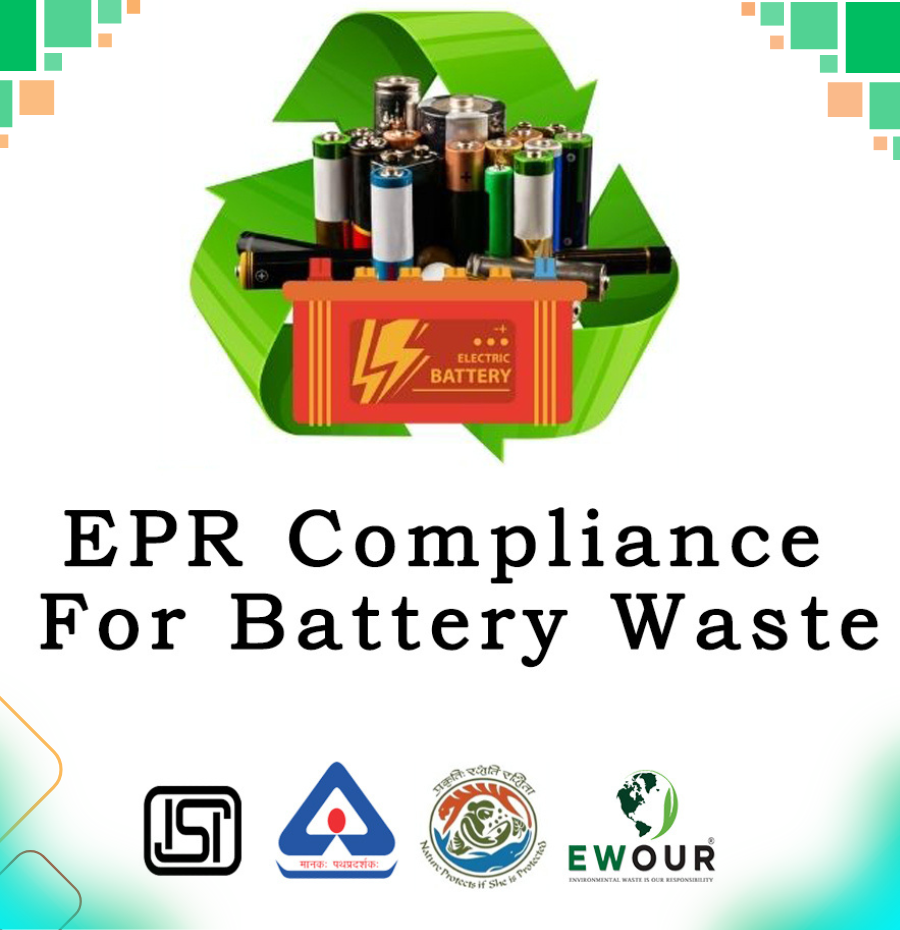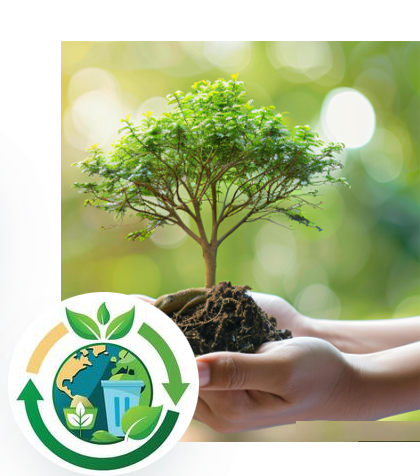What is EPR for Battery Waste?
Extended Producer Responsibility (EPR) is a policy approach where producers are held accountable for the lifecycle of the products they introduce, especially after consumer use.
Battery waste includes all types of batteries that power electronic devices by converting chemical energy into electrical energy, along with their components, which may or may not be hazardous. This waste consists of expired or discarded batteries, as well as pre-consumer off-spec batteries units produced for testing that do not meet quality standards and aren’t released to the market. In the context of battery waste, this means:
- Ensuring the collection and safe disposal of used batteries
- Meeting recycling and refurbishment targets
- Submitting periodic compliance reports to the Central Pollution Control Board (CPCB)
Why is EPR Compliance For Battery Waste Important?
EPR Compliance for Battery Waste plays a crucial role in:
- Preventing environmental contamination caused by hazardous materials like lead, mercury, cadmium, and lithium.
- Reducing landfill use and promoting recycling of valuable materials such as metals and plastics.
- Meeting legal obligations to avoid penalties and business disruptions.
- Enhancing brand reputation through sustainable practices and regulatory adherence.
Legal Framework: Battery Waste Management Rules, 2022
The Battery Waste Management Rules, 2022, issued by the Ministry of Environment, Forest and Climate Change (MoEFCC), apply to all types of batteries, portable, automotive, electric vehicle (EV), and industrial. Key provisions include:
- Registration of producers with CPCB through the online EPR portal.
- Mandatory collection targets based on product categories.
- Issuance and trading of EPR Certificates for compliance.
- Restrictions on landfilling and incineration of battery waste.
Who is required to comply with EPR regulations for battery waste?
The following entities must adhere to EPR Compliance for Battery Waste:
- Producers and Importers of batteries and battery-operated devices
- Brand Owners selling battery-powered products
- Battery Assemblers and Manufacturers
- Recyclers and Refurbishers handling used batteries
- Bulk Consumers and Collection Centers
Step-by-Step Process for EPR Compliance For Battery Waste
Registration on CPCB EPR Portal
Producers must register online with CPCB using the official EPR portal. Registration is a prerequisite for lawful operations under the Battery Waste Management Rules.
Submission of EPR Plan
An Extended Producer Responsibility Plan is to be submitted outlining collection targets, recycling partners, take-back schemes, and proposed awareness initiatives.
Battery Collection and Disposal
Set up mechanisms for battery waste collection, including partnerships with collection centers, dealers, or third-party logistics providers.
Tie-Up with Authorized Recyclers
Ensure batteries are processed by CPCB-approved recyclers or refurbishers. The quantity recycled contributes to the producer’s EPR compliance targets.
Acquisition of EPR Certificates
Producers are required to obtain EPR Certificates from recyclers or refurbishes for the quantity of battery waste managed.
Annual Returns and Audits
Submit annual reports to CPCB with documentary evidence of collection, disposal, and EPR certificate usage. Maintain records for at least three years.
Documents Required for EPR Compliance For Battery Waste
- GST Certificate
- Company PAN and Aadhar of Authorized Signatory
- Import-Export Code (if applicable)
- Factory/Trade License
- Layout Plan or Site Map
- Electricity Bill/Utility Bill
- Details of batteries and product categories
- Proof of tie-up with authorized recycler/refurbisher
Penalties for Non-Compliance
Failure to comply with EPR obligations can lead to:
- Revocation of registration
- Financial penalties under the Environmental Protection Act
- Legal action by CPCB or SPCBs
- Ban on product sales or imports
How Ewour Helps with EPR Compliance for Battery Waste
At Ewour, we simplify the complex regulatory framework and offer end-to-end assistance for EPR compliance, including:
- CPCB registration and documentation
- Drafting and submission of EPR Plans
- Coordination with recyclers/refurbishers
- Timely report filing and audit support
- Guidance on EPR Certificate trading
With the growing demand for sustainable waste management practices, EPR Compliance for Battery Waste is no longer optional, it’s a statutory responsibility for businesses across India. Partner with Ewour to ensure hassle-free compliance and promote environmental responsibility while staying ahead in regulatory matters.










